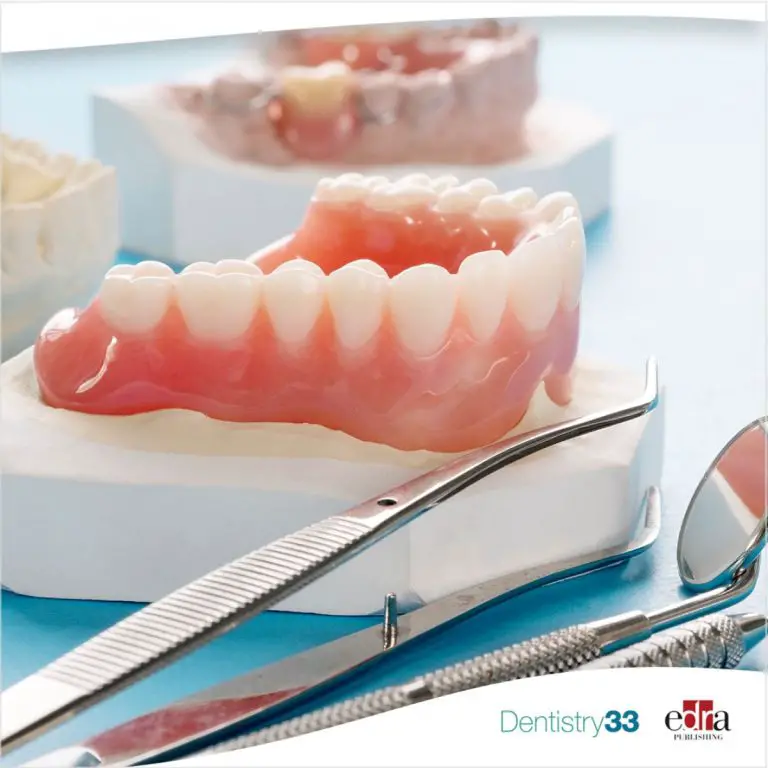Last Updated on 2 weeks by DR. ALBIN SIPES
Denture glue is removable with proper cleaning techniques. Denture adhesives can be easily removed by soaking dentures in warm water and gently brushing them.
Many people with dentures use denture adhesives to ensure a secure fit and prevent them from moving around or falling out. However, there may come a time when the denture wearer needs to remove the adhesive for cleaning purposes. The good news is that denture adhesive is removable with simple steps.
By soaking the dentures in warm water and brushing them, the adhesive can be effectively removed. It allows for thorough cleaning and proper maintenance of the dentures. It ensures optimal oral hygiene and prevents any discomfort or irritation caused by the adhesive residue.
The Role Of Denture Glue In Securing Dentures
Denture glue, also known as denture adhesive or denture cream, plays a crucial role in securing dentures in place. While dentures are custom-made to fit beautifully in the mouth, they can sometimes become loose and shift during daily activities such as eating, speaking, or even laughing.
Denture glue is designed to address this issue by providing extra stability and preventing dentures from slipping or moving. Let’s delve into the critical aspects of understanding the purpose of denture glue and how it enhances denture stability.
Understanding The Purpose Of Denture Glue:
- Denture glue is a temporary solution for keeping dentures in place.
- It helps to create a strong bond between the dentures and the gums, reducing movement and discomfort.
- Denture glue also improves chewing efficiency and speech clarity by ensuring a secure fit.
- It provides confidence and peace of mind, allowing denture wearers to go about their daily activities without worrying about their dentures coming loose.
How Denture Glue Enhances Denture Stability:
- Denture glue forms a thin and even layer between the dentures and the gums, creating a suction effect that holds the dentures securely.
- It fills in any gaps or spaces between the dentures and the gums, ensuring a snug fit and reducing the risk of irritation.
- Denture glue can compensate for minor fitting issues, improving the overall stability of the dentures.
- The adhesive properties of denture glue enable denture wearers to enjoy a broader range of foods, as it prevents food particles from getting trapped beneath the dentures.
Factors To Consider When Choosing A Denture Glue:
- Type of denture glue: There are different types of denture glue available, including powder adhesives, cream adhesives, and adhesive strips. Choose one that suits your preferences and needs.
- Allergies and sensitivities: Some denture glues may contain ingredients that can cause allergies or irritations. Be sure to check the ingredients list and choose a glue that is suitable for your specific needs.
- Ease of use: Consider the application method and how convenient it is for you. Some denture glues need more preparation and drying time, while others offer quick and easy application.
- Longevity: Look for a denture glue that provides a secure hold throughout the day. It reduces the need for frequent reapplication.
- Compatibility: Denture glue should be compatible with both your dentures and your gums. It ensures a comfortable and effective fit.
Remember, denture glue is designed to enhance the stability of dentures, but you need to follow your dentist’s advice for adjustments to ensure the proper fit and comfort of your dentures. So, please choose the suitable denture glue based on your individual needs and preferences. Then, you can enjoy the confidence and stability it provides in your daily life.
Exploring The Removability Of Denture Glue
Are you someone who wears dentures and uses denture glue? If so, you may have wondered about the removability of denture glue. Can it be easily removed from your dentures? Let’s dive into this topic and find out.
Can Denture Glue Be Easily Removed From Dentures?
Removing denture glue from your dentures can be a tricky task. Here are the key points to consider:
- Denture glue is designed to provide a strong hold, so it may take time to come off. The adhesive properties of denture glue help keep your dentures in place, ensuring a secure fit.
- The removability of denture glue depends on the type of adhesive used. Some denture glues are water-soluble, making them easier to remove, while others require the use of adhesive removers or special cleaning techniques.
- It is essential to remove denture glue completely to maintain the hygiene and optimal functioning of your dentures. Leaving residue or remnants of glue on your dentures can lead to oral health issues, such as the buildup of bacteria and fungi.
Understanding The Impact Of Denture Glue On Oral Health
The use of denture glue can have both positive and negative effects on your oral health. Consider the following points:
- Denture glue can enhance the stability and comfort of your dentures, allowing you to eat, speak, and smile with confidence.
- However, excessive or improper use of denture glue may have detrimental effects. If not removed properly, residual denture glue can accumulate and create an ideal environment for the growth of microorganisms, leading to oral infections and bad breath.
- It is crucial to strike a balance between the use of denture glue and maintaining good oral hygiene. Regular clean your dentures and removing the adhesive entirely is essential.
Tips For Safely Removing Denture Glue
To remove denture glue from your dentures, consider the following tips:
- Start by rinsing your dentures under warm water to soften the adhesive.
- Brush your dentures using a denture brush or a soft-bristled toothbrush to remove any remaining glue.
- Use a denture adhesive remover or a mild dish soap to dissolve the adhesive and clean your dentures thoroughly.
- Avoid using harsh chemicals, such as nail polish remover or bleach, as they can damage the denture material.
- After cleaning, rinse your dentures thoroughly to remove any residue from the adhesive remover or soap.
- Always follow the specific instructions provided by the denture adhesive manufacturer for safe removal.
Denture glue can provide a secure hold for your dentures, but it may not be easily removable. Maintaining good oral hygiene and properly removing the adhesive is crucial to prevent oral health issues. By following the tips mentioned above, you can ensure the safe removal of denture glue and maintain the cleanliness of your dentures.
Alternatives To Traditional Denture Glue
When it comes to denture application, traditional denture glue is a common method used to secure dentures in place. However, there are alternative options available that offer a more convenient and reliable solution. Now, we will explore the alternatives to traditional denture glue-
Introducing Alternative Methods For Denture Application
- Adhesive strips: These thin, pre-cut adhesive strips provide a mess-free application and hold dentures in place. They offer the advantage of easy removal without leaving behind a sticky residue. Adhesive strips are easy to use and provide a strong grip, allowing denture wearers to confidently go about their day without worrying about denture movement.
- Denture glue: Denture glue is often referred to as denture adhesive or denture cream. It’s a popular choice for securing dentures. It comes in a tube or a cream-like consistency, which is applied to the denture before placement in the mouth. Denture glue provides a strong hold, ensuring dentures stay in place while allowing for easy removal. However, the downside is that it can be messy and leave behind residue, requiring thorough cleaning after each use.
Adhesive Strips Vs. Denture Glue
Adhesive strips:
- Mess-free application: Adhesive strips eliminate the mess associated with traditional denture glue. They can be easily applied to the denture and offer a clean and precise application.
- Easy removal: With adhesive strips, denture removal becomes hassle-free. They can be peeled off, leaving no sticky residue.
Denture glue:
- Stronghold: Denture glue provides a robust grip, ensuring dentures stay securely in place throughout the day.
- Versatile: Denture glue can be used with all types of dentures, including partials and complete dentures.
Implant-Supported Dentures: A Permanent Alternative
- Implant-supported dentures For those seeking a more permanent solution, implant-supported dentures offer an excellent alternative. These dentures are anchored to dental implants surgically placed in the jawbone, providing a secure and permanent attachment. Implant-supported dentures offer enhanced stability, allowing wearers to enjoy their favorite foods and speak with confidence.
Pros And Cons Of Different Denture Adhesive Options
Adhesive strips Pros:
- Mess-free application
- Easy removal
- Clean and precise
Adhesive strips Cons:
- May have limited availability
- It may not provide as strong a hold as denture glue.
Denture glue Pros:
- Stronghold
- Versatile
Denture glue Cons:
- Can be messy
- Requires thorough cleaning
- May leave residue
Implant-supported Dentures Pros:
- Permanent solution
- Enhanced stability
- Improved chewing ability
Implant-supported Dentures Cons:
- Surgical procedure required
Tips And Tricks For Secure And Easy Denture Application
Are you tired of dealing with dentures that slip, slide, or cause discomfort? Proper application of denture glue can make all the difference in ensuring a secure and comfortable fit.
Proper Denture Maintenance And Care
It’s essential to follow proper maintenance and care routines To ensure the longevity and effectiveness of your dentures. Consider the following tips:
- Clean your dentures thoroughly with a denture brush and mild denture cleaner after each use. Avoid using abrasive materials that can damage the surface.
- Rinse your dentures well before applying any adhesive to remove any residue.
- Soak your dentures in a denture cleaner solution to remove stains and bacteria. Follow the manufacturer’s instructions for the recommended duration.
- Store your dentures in a denture case or cup filled with water to prevent them from drying out or warping.
Applying Denture Glue Correctly For Optimal Adhesion
Correctly applying denture glue is essential for optimal adhesion and stability. Follow these steps to ensure a secure fit:
- Start with clean and dry dentures.
- Apply a small amount of denture adhesive or glue onto your dentures. Avoid using too much, as it may squeeze out when you place the dentures in your mouth.
- Spread the adhesive evenly on the denture surface, leaving about 1/4 inch of space from the edges.
- Carefully place the dentures onto your gums and press down firmly for a few seconds to help the adhesive bond.
- Avoid eating or drinking anything for at least 15 minutes to allow the adhesive to set fully.
Preventing Denture Slipping And Discomfort
Nobody wants their dentures to slip or cause discomfort while speaking or eating. Follow these tips to prevent such issues:
- Practice proper tongue placement when speaking or eating. It can help stabilize your dentures and prevent them from slipping.
- Avoid eating sticky or hard foods that can dislodge your dentures. Opt for softer and smaller bite-sized foods instead.
- Consider using a denture adhesive with enhanced grip or added cushioning if you frequently experience slippage or discomfort.
Eliminating Common Denture Problems Through Proper Application Techniques
By following proper application techniques, you can minimize common denture problems. Consider the following methods:
- When applying denture adhesive, avoid applying it in a straight line across the denture surface. Instead, apply it in tiny dots or lines to ensure even distribution and prevent excess adhesive from squeezing out.
- If you notice any discomfort or soreness after applying denture adhesive, remove your dentures and rinse your mouth with water. Consult your dentist if the problem persists.
- Regularly check the fit of your dentures. Over time, your jawbone may change, causing your dentures to become loose. If they no longer fit properly, contact your dentist to get them adjusted.
Remember, proper denture application and maintenance are vital to ensuring a comfortable and secure fit. By following these tips and tricks, you can bid farewell to denture slipping and enjoy a confident smile!
A Comprehensive Guide To Denture Adhesive Removal
Is Denture Glue Removable?
If you’ve ever used denture adhesive, you may wonder if it’s easy to remove. The good news is that denture glue is indeed removable, and there are effective techniques and products to help with the process.
Step-By-Step Process For Removing Denture Glue:
- Begin by gently removing your dentures from your mouth.
- Rinse your dentures under warm water to remove any loose debris or food particles.
- Apply a small amount of denture cleanser or mild dish soap to a soft-bristled toothbrush.
- Carefully brush the denture adhesive residue, focusing on the areas where the glue is the most stubborn.
- Rinse your dentures thoroughly with warm water after brushing to remove any remaining adhesive or cleanser.
- For any stubborn residue that persists, you can try using a denture adhesive remover solution or wipes. Follow the instructions provided with the product for the best results.
- Once all the adhesive has been removed, rinse your dentures once again and dry them with a clean towel before placing them back in your mouth.
Recommended Products And Techniques For Denture Adhesive Removal:
- Denture adhesive removers: Look for adhesive removers specifically formulated for dentures. These products effectively dissolve the adhesive without damaging your dentures.
- Denture adhesive remover wipes: These convenient wipes are pre-moistened with a specialized solution that helps remove adhesive residue. They are easy to use and provide a mess-free application.
- Denture cleanser tablets: These tablets not only clean your dentures but also help dissolve any remaining adhesive residue. Follow the instructions on the package to remove the glue effectively.
- Warm water and a soft-bristled toothbrush: If you prefer a more straightforward and cost-effective approach, warm water and a soft-bristled toothbrush can do the trick. Be sure to be gentle when brushing to avoid damaging the delicate surface of your dentures.
Tips For Minimizing Residue And Damage During The Removal Process:
- Use the recommended amount of denture adhesive: Applying too much adhesive can make the removal process more challenging. Follow the manufacturer’s instructions for the proper amount to use.
- Clean your dentures regularly: Regular cleaning can help prevent excessive buildup of adhesive residue, making the removal process more straightforward.
- Don’t use abrasive materials: Avoid using abrasive materials, such as metal objects or hard-bristled brushes, as they can scratch or damage your dentures.
- Be gentle: When brushing or using a denture adhesive remover, be gentle to avoid any damage to the dentures.
- Consult your dentist: If you’re having difficulty removing denture glue or have concerns about the process, it’s always best to consult your dentist. They can provide expert advice and recommendations tailored to your specific needs.
Now that you’re armed with this comprehensive guide to denture adhesive removal, you can confidently keep your dentures clean and adhesive-free. With the proper techniques and products, you can ensure comfortable and secure denture wear without the hassle of stubborn glue residue.
The Impact Of Denture Glue On Oral Health
Potential Risks And Side Effects Of Prolonged Denture Glue Use
Denture glue, also known as denture adhesive, can be a helpful tool in securing your dentures and providing a tighter fit. However, prolonged and excessive use of denture glue can pose certain risks and side effects. Here are some potential concerns to consider:
- Denture glue residue: Over time, denture adhesive can build up on your gums and the surface of your dentures, which may become difficult to remove.
- Oral irritation: Some individuals may experience irritation or allergic reactions to the ingredients found in denture glue. These reactions can manifest as redness, swelling, or soreness in the mouth.
- Potential damage to gum tissue: Excessive use of denture glue can put pressure on your gum tissue, leading to gum irritation and potential damage.
- Difficulty identifying underlying issues: Regularly using denture glue to fix ill-fitting dentures may mask underlying problems, such as changes in bone structure or poorly fitting dentures.
Maintaining Oral Hygiene While Using Denture Glue
While denture glue can help improve the stability and fit of your dentures, it is essential to maintain good oral hygiene practices alongside its use. Here are some tips to keep in mind:
- Brush your gums and tongue: Even if you wear dentures, it’s crucial to brush your gums and tongue daily to remove plaque and stimulate blood circulation.
- Clean your dentures thoroughly: Remove your dentures and clean them thoroughly to remove any denture glue residue and food particles. Use a denture brush and mild denture cleaner recommended by your dentist.
- Soak your dentures overnight: Soaking your dentures in a denture cleaner or a solution recommended by your dentist helps to remove any leftover denture glue and bacteria while keeping your dentures fresh and clean.
- Rinse your mouth after removing dentures: After taking out your dentures, rinse your mouth with water to remove any remaining denture adhesive.
Importance Of Regular Dental Check-Ups For Denture Wearers
Regular dental check-ups are vital for all denture wearers, even if you use denture glue. Here’s why:
- Professional cleaning: Your dentist can remove any stubborn denture glue residue and perform a professional cleaning to help maintain good oral health.
- Assessing denture fit: Over time, your dentures may become loose or ill-fitting. Regular dental check-ups allow your dentist to evaluate the fit and make necessary adjustments to ensure optimal oral comfort and function.
- Monitoring oral health: Regular dental visits enable your dentist to monitor your overall oral health, including the condition of your gums and the underlying bone structure. They can identify any potential issues early on and provide appropriate treatment.
Frequently Asked Questions: Is Denture Glue Removable?
Is Denture Glue Safe For Long-Term Use?
Denture glue is safe for long-term use when used according to the instructions provided. However, it’s recommended to occasionally give your gums a break from using denture glue to promote oral health.
How Frequently Should Denture Glue Be Applied?
Denture glue should be applied as directed by the manufacturer. Typically, a pea-sized amount used in several dots along the ridge of the denture is sufficient to create a secure hold. Follow the recommended usage instructions for the best results.
Conclusion
So, the final answer is that denture glue is removable. Removing denture glue is an easy process when you maintain it properly. Following the blog, I hope that we provide the best knowledge.
But your main job is to follow your dentist’s information first. Discuss them with the proper use of it.
Then, you can enjoy fitted, longer, safe, and beautiful dentures in your daily life.





